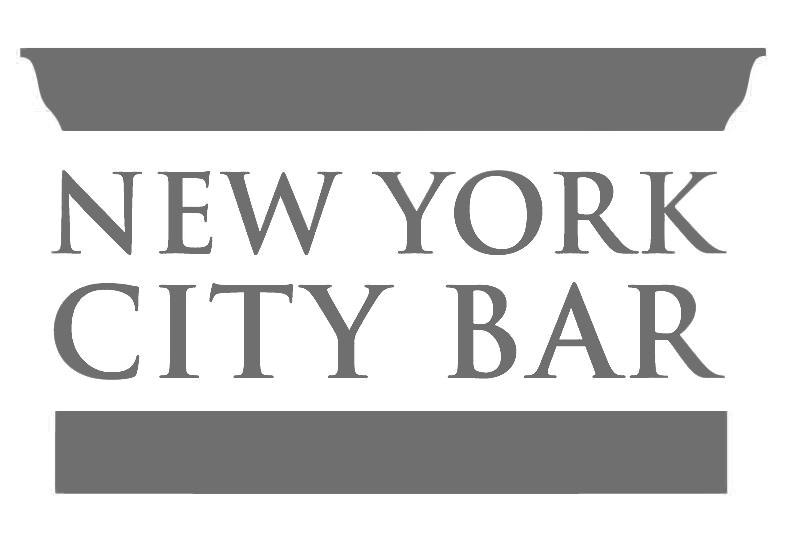As we step into a new year, it is crucial for employers and HR professionals to stay abreast of the myriad changes in employment law that 2025 brings. This comprehensive overview serves as a crucial tool to ensure your organization remains compliant with the latest legal requirements across various jurisdictions. Given the significant updates, including adjustments to salary thresholds, modifications in family and medical leave policies, and evolving non-compete agreement standards, vigilance in compliance practices has never been more important.
To navigate these changes effectively, it’s imperative to update your employee handbook accordingly. This will not only ensure legal compliance but also foster a transparent and informed workplace environment. Let this guide assist you in making the necessary adjustments to your policies and procedures, safeguarding your organization against potential legal challenges in the year ahead.
| JURISDICTION | TOPIC | CHANGE OF LAW |
| FEDERAL | Exempt/Non- Exempt | Salary Thresholds: A court has stopped the increase in salary limits for certain exempt employees. The previous limits remain: $35,568 for office workers and $107,432 for top earners. |
| CALIFORNIA | Captive Audience | Employers will be prohibited from threatening or penalizing an employee who doesn’t attend a meeting or listen to communication from the employer about their views on political or religious matters. |
| Crime Victim Leave | A new California law will expand the state’s paid sick leave law by (a) allowing leave if an employee’s family member is a crime victim, (b) extending the types of crimes covered, and (c) adding additional reasons for which employees can take leave if the employee or their family member is a crime victim. Employers with 25 or more employees must provide crime victim leave and can now place limits on the amount of unpaid leave for crime victims and their families. The law also requires employers to notify employees of these rights at the time of hire, annually, and upon request. The state’s Civil Rights Department has not yet released this notice, which they will do by July 1, 2025. | |
| Exempt/Non- Exempt | California’s salary threshold for exempt employees under state law will increase to $68,640 per year, $5,720 per month, or $1,320 per week. | |
| Job Postings | Employers will no longer be allowed to say in a job posting or application that a driver’s license is required for employment unless (a) the employer reasonably expects driving to be a job function and (b) the employer reasonably believes an alternative form of transportation wouldn’t be comparable in travel time or cost to the employer. | |
| Paid Family and Medical Leave | Employers can no longer require employees to use up to two weeks of vacation time before they start receiving paid family and medical leave insurance benefits through the state-run program. Also, employees’ wage replacement benefits will increase from between 60% and 70% to between 70% and 90%, with employee contribution rates increasing from 1.1% to 1.2%. | |
| Whistleblower Protection | Employers who post a newly developed whistleblower poster will be deemed in compliance with the whistleblower statute’s notice requirements. The law doesn’t require employers to use the new poster as long as they still post a notice of employee rights, but the new poster is guaranteed to be compliant. As of the date of this publication, the Labor Commissioner has not published the new poster. Please consult us when and if you need this poster. | |
| COLORADO | COMPS Order | Colorado recently released the 2025 Colorado Overtime and Minimum Pay Standards (COMPS) Order, effective January 1. |
| Non-Compete Agreements | On January 21, 2025, the salary thresholds in Colorado will increase to $127,091 for non-compete agreements and $76,254.60 for non-solicit agreements. | |
| CONNECTICUT | Pay Stubs | Every time employers pay wages, they must include: (a) how many paid sick leave hours the employee has earned or received from the employee, and (b) how many paid sick leave hours the employee has used in the year. Employers must keep these records for three years. Contact your payroll provider. |
| Sick Leave | The paid sick leave law in Connecticut is covering more employers. Right now, if employers have 50 or more employees in the state, they have to follow CT’s sick leave laws. Starting on January 1, 2025, this applies to employers with 25 or more employees. This number will go down to 11 employees in 2026, and to just one employee in 2027. The new law also expands the type of employees who are eligible for leave. Currently, only service workers who are paid hourly or who are non-exempt under the FLSA are entitled to paid sick leave. Beginning January 1, 2025, employers will need to provide paid sick leave to all employees. | |
| Sick Leave Poster | Employers must put up a new paid sick leave poster reflecting the requirements of the state’s updated sick leave law when it becomes effective. | |
| DELAWARE | Paid Family and Medical Leave | Delaware’s Healthy Delaware Families Act creates a statewide paid family and medical leave insurance program. Employers will need to begin withholding contributions beginning January 1, 2025. Leave and benefits will be available to employees beginning January 1, 2026. The state has also published the notice (which includes a workplace poster) that employees can use to comply with the law’s notice and posting requirements. Please contact your payroll provider and contact us if you need a poster. |
| DISTRICT OF COLUMBIA | Non-Compete Agreements | As of January 1, 2025, the salary threshold for non-compete agreements in Washington, D.C. is $154,200 or less for covered employees and $257,000 or less for medical specialists. Employers who violate the non-compete agreement statute face stiff penalties. |
| ILLINOIS | Captive Audience | Starting January 1, employers may no longer require employees to attend employer-sponsored meetings whose primary purpose is to communicate the employer’s opinion on religious or political matters. Employers also may not punish employees for refusing to attend those meetings. |
| Employee Verification | A new Illinois law discourages Illinois employers from using E-Verify (a free, online system that helps employers confirm the employment eligibility of new hires) unless federal law requires the employer to use it. Employers also can’t use work authorization verification or reverification requirements greater than those that federal law requires. | |
| Military Leave | Illinois law has expanded its definition of “armed forces” to include the United States Space Force. | |
| Non-Compete | A new law clarifies the non-compete protections for construction workers. Previously, the law invalidated non-compete agreements with workers “covered by a collective bargaining agreement under the Illinois Public Labor Relations Act or the Illinois Educational Labor Relations Act and individuals employed in construction.” Beginning January 1, 2025, the new amendment clarifies that these protections don’t just apply to construction workers covered by a collective bargaining agreement, but all construction workers except those “who primarily perform management, engineering or architectural, design, or sales functions for the employer or who are shareholders, partners, or owners in any capacity of the employer.” Also, new non-competes with licensed mental health professionals will be unenforceable if those agreements would be “likely to result in an increase in cost or difficulty” to veterans or first responders who seek mental health services. | |
| Pay Stubs | Each pay period, employers have to give employees a pay stub showing their hours worked, pay rate, overtime pay, and overtime hours worked, gross wages earned, deductions, and total year-to-date wages and deductions. Employers can provide pay stubs electronically and must keep pay stub records for at least 3 years. Make sure your payroll provider is aware of these changes. | |
| Pay Transparency | Starting January 1, employers in Illinois, with a minimum of 15 employees, must include pay scale and benefits information in their job postings. The law applies to jobs performed at least partly in the state as well as jobs where the employee will report to a supervisor, office, or other work site in Illinois. | |
| Protected Characteristics | Illinois expanded its anti-discrimination law by adding two new categories of protected characteristics: reproductive health decisions and family responsibilities. First, employers can’t discriminate against employees for actual or perceived decisions about reproductive health, meaning a person’s decisions regarding the use of contraception; fertility or sterilization care; assisted reproductive technologies; miscarriage management care; healthcare related to the continuation or termination of pregnancy; or prenatal, intranatal, or postnatal care. Second, employers can’t discriminate against employees for their “family responsibilities,” which means an employee’s actual or perceived care of a family member in the past, present, or future. | |
| Whistleblower Protections | Starting January 1, 2025, Illinois has strengthened protections for whistleblowers. Employers are not allowed to retaliate against employees who, acting in good faith (i.e., honestly and without deceit), reveal or threaten to reveal policies or practices that they believe are illegal or harmful to employees or others. | |
| KENTUCKY | Drug Testing | Medical marijuana will be legal in Kentucky starting next year, although the law doesn’t require employers to accommodate the use or presence of medical marijuana in the workplace. Employers will be free to have a drug testing policy, maintain a drug-free workplace, or have a zero-tolerance drug policy. |
| LOUISIANA | Non-Compete | Beginning January 1, 2025, non-competes can only be signed at the beginning of employment and can’t be entered after the employee has started work. |
| MAINE | Exempt/Non- Exempt | Maine’s salary threshold for exempt employees under state law will increase to $43,950 per year or $845.20 per week. |
| Paid Family and Medical Leave | Contributions to Maine’s paid family and medical leave insurance program begin on January 1, 2025, although employees won’t be able to access paid benefits until May 1, 2026. | |
| Non-Compete Agreements | Maine does not allow non-compete agreements with employees who earn less than 400% of the federal poverty level. That number is set to increase in January, though it hasn’t been released yet. | |
| MARYLAND | Non-Compete Agreements | The salary threshold for non-compete agreements in Maryland will increase, on January 1, to $24 per hour, or $49,920 per year. |
| MASSACHUSETTS | Paid Family and Medical Leave | Employees’ maximum weekly benefit through the state’s paid family and medical leave insurance program will increase to $1,760.64. |
| Poster and Notice Requirements | The state has published its 2025 required paid family and medical leave poster, as well as the 2025 updated individual notice for employers with 25 or more Massachusetts employees and for employers with less than 25 Massachusetts employees. Please contact us if you need such poster. | |
| MINNESOTA | Drug Testing | The state has updated the Drug and Alcohol Testing in the Workplace Act to permit “oral fluid testing” for checking drug, alcohol, and cannabis use. All drug testing requirements currently imposed by law apply equally to any oral fluid testing the employer uses. |
| Employee Notice (St. Paul) | Employers with 1 or more employees in St. Paul must provide new St. Paul employees with a notice of their rights under the city’s wage theft law upon hire and annually thereafter, starting January 1, 2025. This notice must contain all the information required by Minn. Stat. § 181.032(d), the employee’s start date, notice of the city’s minimum wage, a statement that sharing tips is voluntary, and any overtime policy applicable to the employee’s position. Employees must sign the notice and return it to the employer, who is then required to copy it, note the date it was received by the employee, and maintain the notice for 3 years after termination of that employee’s employment. Finally, employers will need to include a notice of employee rights under this wage theft ordinance in their employee handbook, if they have one. | |
| Pay Transparency | Employers with 30 or more employees in Minnesota must include the starting salary range and a general description of all of the benefits and other compensation an employee can expect in all job postings. | |
| Pay Stubs (St. Paul) | Beginning next year, employers must provide their St. Paul employees with pay stubs each pay period. The pay stubs may be provided electronically but must be provided physically if requested by the employee at least 24 hours in advance. The pay stubs must include all the same information required by Minnesota state law, plus any amount of an employee’s wages deducted by the employer. | |
| Wage Theft Notice (St. Paul) | Effective January 1, St. Paul employers will need to begin posting the city’s wage theft flyer in a place where employees will see it. | |
| MISSOURI | Criminal History | Starting in January, a person with an expunged arrest can answer “no” if the employer asks whether the person has ever been arrested or charged with a crime, as long as there’s no public record of a crime after the expungement. |
| NEW HAMPSHIRE | Weapons in the Workplace | Beginning January 1, certain employers can’t ask employees whether they have firearms or ammunition in their vehicles, nor may they search vehicles for them. Employers that receive public funds of any kind can’t prohibit employees from keeping lawfully owned firearms or ammunition out of view in locked vehicles in an employer parking lot. |
| NEW YORK | Sick Leave | Employers must begin providing employees with an additional 20 hours of paid sick leave for prenatal care. This is leave taken for healthcare services for an employee during their pregnancy, including physical exams, medical procedures, monitoring and testing, and meeting with healthcare providers to talk about the pregnancy. |
| OREGON | Employee Notice | Warehouse distribution center employers with 100 or more employees at a single warehouse distribution center or 1,000 or more employees at 1 or more warehouse distribution centers in Oregon must provide written notice to employees of any quota they have. The notice must include the quantified number of things to be done within a set time and a description of the consequences if an employee doesn’t meet the quota. This notice must be provided upon hire, within 2 business days of any change, and when an employer takes action against an employee for failing to meet quota. |
| Paid Family and Medical Leave | Leave for going through the legal process to foster or adopt a child will now be covered under Oregon’s paid family and medical leave insurance program (“Paid Leave Oregon”) and is no longer an allowable reason for leave under Oregon’s unpaid family and medical leave law (“Oregon Family Leave Act”). | |
| Non-Compete Agreements | The exact amount is yet to be determined, but starting January 1, 2025, Oregon will raise the minimum salary required for non-compete agreements. This change is based on the Consumer Price Index, which measures the average cost of goods and services in the West Region. | |
| PENNSYLVANIA | Non-Compete Agreements | The definition of a non-compete will also be updated. The current definition states that a non-compete agreement is one that is “designed to impede” the worker’s ability to practice. The new definition clarifies that a non-compete is any agreement that “has the effect of impeding” that ability, regardless of whether that was the agreement’s original intent. |
| RHODE ISLAND | Employee Notice | In the new year, employers with over 50 full-time employees will need to display a veterans’ benefits poster. Please consult us if you need such poster. |
| Temporary Caregiver Insurance | Employees will be allowed to take 7 weeks (up from 6) of leave under the state’s temporary caregiver insurance program. | |
| Non-Compete Agreements | Rhode Island does not allow non-compete agreements with employees who earn less than 250% of the federal poverty level. Thus, Rhode Island’s threshold of $37,650 in 2024 is being increased to $39,125 in 2025. | |
| VIRGINIA | Non-Compete Agreements | Virginia doesn’t allow non-competes with employees who earn less than the average weekly wage. That number is set to increase in January, though it hasn’t been released yet. |
| WASHINGTON | Exempt/Non- Exempt | Washington’s salary threshold for exempt employees under state law will increase to $69,305.60 per year for employers with 1-50 employees and to $77,968.80 per year for all other employers. |
| Sick Leave | Starting next year, employees can take leave after a declared emergency under the state’s paid sick leave law. The law’s definition of “family member” will also be updated to: (a) include a child’s spouse, (b) clarify that “spouse” includes a husband, wife, or state-registered domestic partner, and (c) include someone who regularly lives in the employee’s home or whose relationship creates an expectation that the employee will care for that person. | |
| Non-Compete Agreements | Starting on January 1, 2025, the salary thresholds for non-competes in Washington will increase to $123,394.17 for employees and $308,485.43 for contractors. |
MIMIMUM WAGE
| STATE | NEW MINIMUM WAGE (PER HOUR) |
| Arizona Flagstaff Tucson | $14.70 $17.85 $15.00 |
| California Belmont Burlingame Cupertino Daly City East Palo Alto El Cerrito Foster City Half Moon Bay Hayward Los Altos Mountain View Menlo Park Novato Oakland Palo Alto Petaluma Redwood City Richmond San Carlos San Diego San Jose San Mateo San Mateo County Santa Clara Santa Rosa Sonoma South San Francisco Sunnyvale West Hollywood | $16.50 $18.30 $17.43 $18.20 $17.07 $17.45 $18.34 $17.39 $17.47 $16.50 small employers; $17.36-large employers $18.20 $19.20 $17.10 $16.50 – 1-25 employees, $17 – 26-99 employees. $17.27 – 100+ employees $16.89 – General, $18.36 – Hotel workers with benefits, $24.48 – Hotel workers without benefits $18.20 $17.97 $18.20 $17.77 $17.32 $17.25 $17.95 $17.95 $17.46 $18.20 $17.87 $16.96 – 1-25 employees $18.02 – 26+ employees $17.70 $19.00 $19.65 |
| Colorado Boulder Boulder County Denver Edgewater | $14.81 $15.57 $16.57 $18.81 $16.52 |
| Connecticut | $16.35 |
| Delaware | $15.00 |
| Illinois Cook County | $15.00 $15.00 |
| Maine Portland Rockland | $14.65 $15.50 $15.50 |
| Michigan | $10.56 on Jan. 1, and $12.48 on Feb. 21 |
| Minnesota Minneapolis St. Paul | Small and large employers must now pay the same Minimum Wage of $11.13 $15.97 $15.97 101+ employees |
| Missouri | $13.75 |
| Montana | $10.55 |
| Nebraska | $13.50 |
| New Jersey | $15.49 |
| New Mexico Las Cruces | Unchanged $12.65 |
| New York NYC, Long Island, Westchester | $15.50 $16.50 |
| Ohio | $10.70 for large employers ($385k+ annual gross). No increase for small employers |
| Rhode Island | $15.00 |
| South Dakota | $11.50 |
| Vermont | $14.01 |
| Virginia | $12.41 |
| Washington Burien Bellingham Renton (medium) Renton (large) SeaTac Seattle Tukwila | $16.66 $21.16 500+ employees in King County $17.66 $18.90 medium-sized employers (15-500 employees worldwide or more than $200M annual gross revenue) $20.90 large employers (501+ employees worldwide) $20.17 $20.76 all employers; no more small/large/benefits distinctions $20.10 – 15-500 employees worldwide or more than $200M annual gross revenue $21.20 – 501+ employees worldwide |
[i] Please note that this article does not include all legal updates. Certain legal changes have been intentionally omitted because they do not affect many of our clients, such as legal changes in the in agriculture industry and/or regarding child labor.





